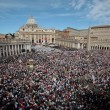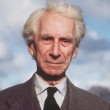The Contingency Argument for God
by Dr. Peter Kreeft
Filed under The Existence of God

Many consider the argument for God from contingency to be one of the strongest. The basic form is simple: If something exists, there must exist what it takes for that thing to exist. The universe—the collection of beings in space and time—exists. Therefore, there must exist what it takes for the universe to exist. What it takes for the universe to exist cannot exist within the universe or be bounded by space and time. Therefore, what it takes for the universe to exist must transcend... Read More
It’s That Simple: The First Cause and Occam’s Razor
by Steven Dillon
Filed under The Existence of God

One objection to First Cause arguments is that they make superfluous attributions: surely in any steady hand Occam’s razor would deliver a much more modest looking First Cause than God. In my last post, I argued that this objection is fallacious in as much as it begs the question against Classical Theism, for which the First Cause and its attributions are indivisible (and thus hardly capable of being whittled by Occam). But, this doesn’t show that there is a First Cause, or that Classical... Read More
Did Jesus Really Rise from the Dead?
by Fr. Dwight Longenecker
Filed under The Resurrection

Last week I wrote a post here on David Hume, miracles, and the resurrection of Jesus. Some of the commenters took issue with my claim that "all the alternatives to the fact of the resurrection of Jesus Christ from the dead are more incredible than the miracle." I'd like to elaborate on that here. Christians claim that the historical human being Jesus of Nazareth was executed then physically rose from the dead and stayed alive. He was seen by many people and then was seen to vanish into... Read More
David Hume, Miracles, and the Resurrection
by Fr. Dwight Longenecker
Filed under The Existence of God, The Resurrection

Most Catholics and atheists agree that if God does not exist, then the material world must be a closed system. If there is no God, the world is self-creating and self-reliant. If there is no God, then there cannot be interruptions in nature. The material world works according to the laws of physics, and even if there are mysteries that cannot presently be explained, they will be one day. In fact, if there is no God, then the physical world must work according to the laws of nature and... Read More
Scientific Geniuses and Their Jesuit Collaborators
by Andrew Kassebaum
Filed under Christianity and Science

Herbert Butterfield, the influential twentieth-century historian, identified the Scientific Revolution as “one of the great episodes in human history,” which, along with the rise of the empires of Alexander the Great and ancient Rome, deserves a place “amongst the epic adventures that have helped to make the human race what it is.”1 Numerous Catholic scientists, both laymen and churchmen alike, made valuable contributions to science before, during, and after the Scientific Revolution. The... Read More
The Common Consent Argument for God
by Dr. Peter Kreeft
Filed under The Existence of God

This proof for God is in some ways like the argument from religious experience and in other ways like the argument from desire. It argues that: Belief in God—that Being to whom reverence and worship are properly due—is common to almost all people of every era. Either the vast majority of people have been wrong about this most profound element of their lives or they have not. It is most plausible to believe that they have not. Therefore it is most plausible to believe that God exists. Everyone... Read More
The Human Strain
by Matthew Becklo
Filed under Culture, The Problem of Evil

In his dark 1977 novel Lancelot, novelist Walker Percy brings us into the walls of a mental institution to hear a man named Lancelot tell his life story, a tale of empty commercialism, salacious self-destruction, and one murderous act of vengeance. Now confined by the four walls of an asylum, he confides in his old friend, a priest and psychiatrist, about the “quest” that led him there and the truth of the world outside: “In times like these when everyone is wonderful, what is needed... Read More
Popular News Site Claims Jesus Never Existed
by Jon Sorensen
Filed under Historicity

An article titled "5 Reasons to Suspect that Jesus Never Existed" was posted last week at Salon.com and was featured in the Yahoo news feed. The article itself does not contain anything groundbreaking to anyone who follows this debate, but it presents the most common objections. Below are five reasons author Valerie Tarico gives, and how to answer them. 1. No first century secular evidence whatsoever exists to support the actuality of Yeshua ben Yosef. Tarico uses only an extensive... Read More
The Stillbirth of Science in Arabia
by Dr. Stacy Trasancos
Filed under Christianity and Science

NOTE: Today we wrap up our weekly series of essays by Dr. Stacy Trasancos on the "stillbirths" of science. They're based on Fr. Stanley L. Jaki's research into the theological history of science in the ancient cultures of Egypt, China, India, Babylon, Greece, and Arabia. See past articles here. The last culture to be examined is that of the Muslims. Although theirs was a monotheistic view, it was not a Christological or Trinitarian view, which left it vulnerable to a monotheism... Read More
If Everything Requires a Cause, What Caused God?
by Dr. Edward Feser
Filed under The Existence of God

W. Norris Clarke’s article, “A Curious Blind Spot in the Anglo-American Tradition of Antitheistic Argument,” first appeared in The Monist in 1970. It was reprinted in his anthology titled The Creative Retrieval of St. Thomas Aquinas: Essays in Thomistic Philosophy, New and Old, which was published posthumously in 2009. I recently read the essay, and I did so with embarrassment and gratification. Embarrassment because I found that something I’ve been harping on for a few... Read More






